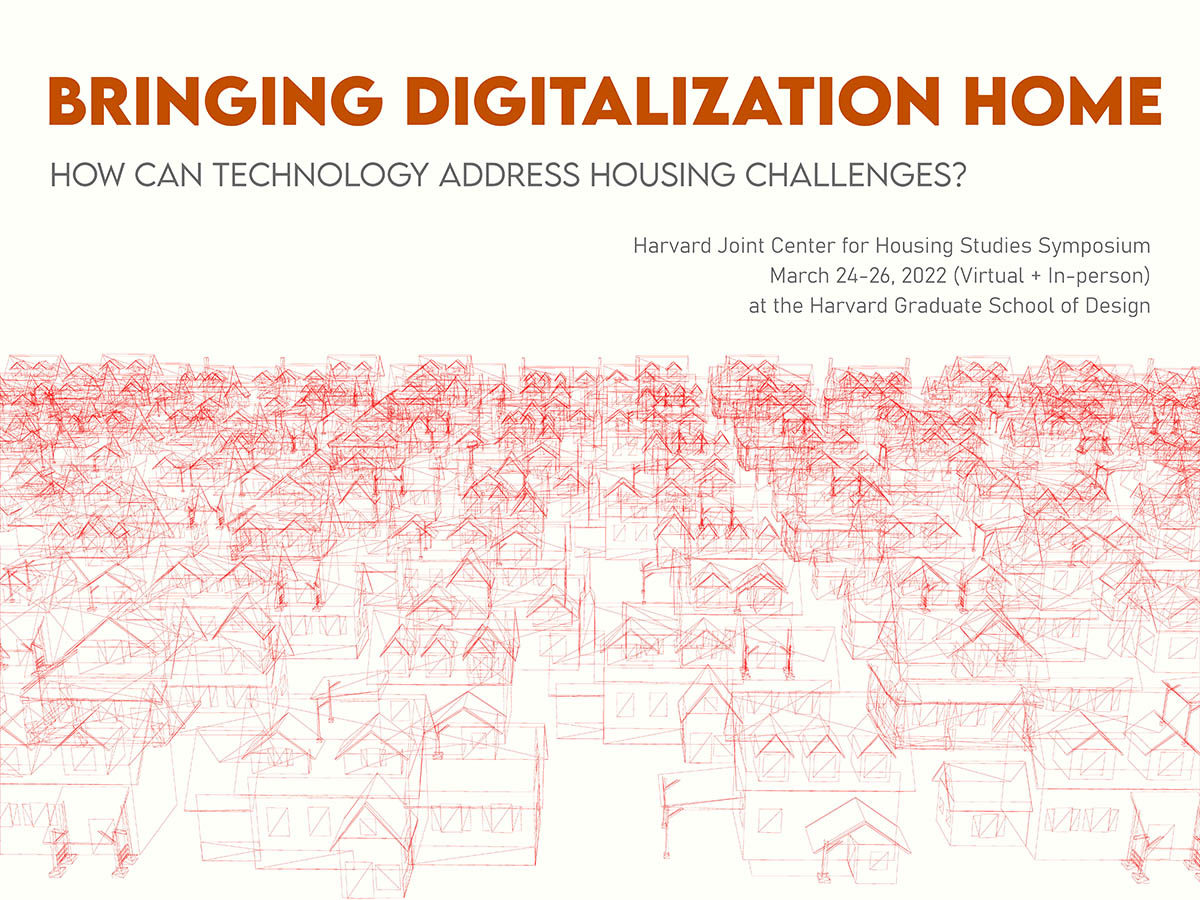Bringing Digitalization Home: How Can Technology Address Housing Challenges?

Event Description
Digitalization—the use of automated digital technologies to collect, process, analyze, distribute, use, and sell information—is spurring fundamental change in the way housing is produced, marketed, sold, financed, managed, and lived in. This symposium, organized by the Harvard Joint Center for Housing Studies, will feature leading scholars and experts from academia, industry, government, and advocacy groups. Participants will examine the nature and extent of technologically-driven changes and assess whether these changes are likely to further (or hamper) efforts to address economic, social, and environmental challenges, such as housing affordability, discrimination, and climate change. Speakers will also suggest strategies that the public, private, and non-profit sectors can use to produce more equitable and environmentally sustainable housing.
For more information, visit: https://www.jchs.harvard.edu/digitalization-symposium
Keynote Address
Designing AI Ethics, in Practice and in Public
Molly Wright Steenson, Vice Provost for Faculty, K&L Gates Associate Professor of Ethics & Computational Technology, and Associate Professor, School of Design, Carnegie Mellon University. Author, Architectural Intelligence: How Designers and Architects Created the Digital Landscape (MIT Press, 2017) and co-editor Bauhaus Futures (MIT Press, 2019).
When a company makes an AI-related misstep, a familiar script unfolds. Someone inside the company brings the problem to public attention, the company produces and promotes a statement of ethics, makes internal changes (or not), and the news cycle typically blows over. But how does this practice hold companies accountable? To what extent does it impact the public’s understanding of technology and ethics? Just as the design of user experience for AI and its related technologies are vital concerns for architects and designers, so too are these questions of ethics and AI. In her keynote, Steenson will examine the role design has to play in the relationship of AI and ethics. Ultimately, is AI ethics, in practice and public about ethics — or something else?
Anyone requiring accessibility accommodations should contact the Public Programs Office at (617) 496-2414 or [email protected].
#GSDEVENTS